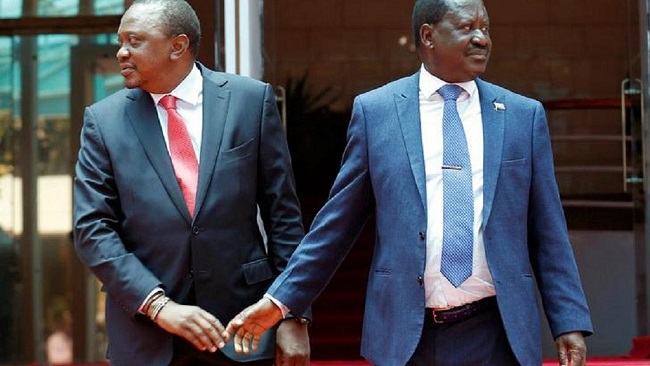Kenyan court quashes President’s constitution change bid
The Kenyan High Court on Thursday ruled that the constitutional review process initiated by President Uhuru Kenyatta is illegal and has been a source of great tension in Kenyan politics in recent months.
The attorney general’s office announced that the government would appeal the decision.
The reform, known as the “Building Bridges Initiative” (BBI), aims to dilute the current “winner takes all” rule, which Kenyatta sees as the cause of repeated post-election conflicts in his country.
A referendum on the issue was in the works, but the five judges of the High Court ruled that the president did not have the right to initiate such a reform and that only Parliament or the citizens could do so.
Kenya’s restive politics
The process, which had been the subject of 11 different appeals filed by political figures or parties, is therefore “unconstitutional, null and void,” they said in their unanimous decision issued Thursday night.
“The constitutional amendment bill is an initiative of the president and the law clearly states that the president does not have the constitutional mandate to initiate constitutional changes by popular initiative,” they explained.
“Civil suits can be filed against the president for violating the Constitution,” they added.
The BBI draft proposes to amend the 2010 constitution, which established a presidential system of government, by creating, among other things, a post of prime minister, two posts of deputy prime minister and a post of opposition leader.
The revision was suggested by a commission set up in 2018 after a historic handshake between President Kenyatta and historic opponent Raila Odinga, who promised to draw a line under years of electoral disputes and political violence.
But it is opposed by Deputy President William Ruto, an ally of Mr. Kenyatta’s since his first election in 2012 and his supposed successor, who sees it as a move to remove him from power.
It is almost election time
Kenya’s presidential election is scheduled for 2022 and Uhuru Kenyatta, who is completing his second term in office, is not eligible to run again.
William Ruto, an ethnic Kalenjin who was promised by Uhuru Kenyatta that he would be the Jubilee presidential candidate in 2022, believes the constitutional review will create a system whereby Kenyatta and Odinga, the country’s two largest ethnic groups, can share power.
The new prime minister’s post, he said, would give Uhuru Kenyatta a chance to stay in office.
In Kenya, which has 42 ethnic groups, political affiliation and community identity are deeply intertwined, and elections have often led to violence.
The post-election crisis that followed the disputed defeat of Raila Odinga in 2007 left more than 1,100 people dead.
The new constitution in 2010 did not prevent further violence after the 2017 presidential election, boycotted by Mr. Odinga after the cancellation of an earlier election won by Mr. Kenyatta.
Source: Africa News





